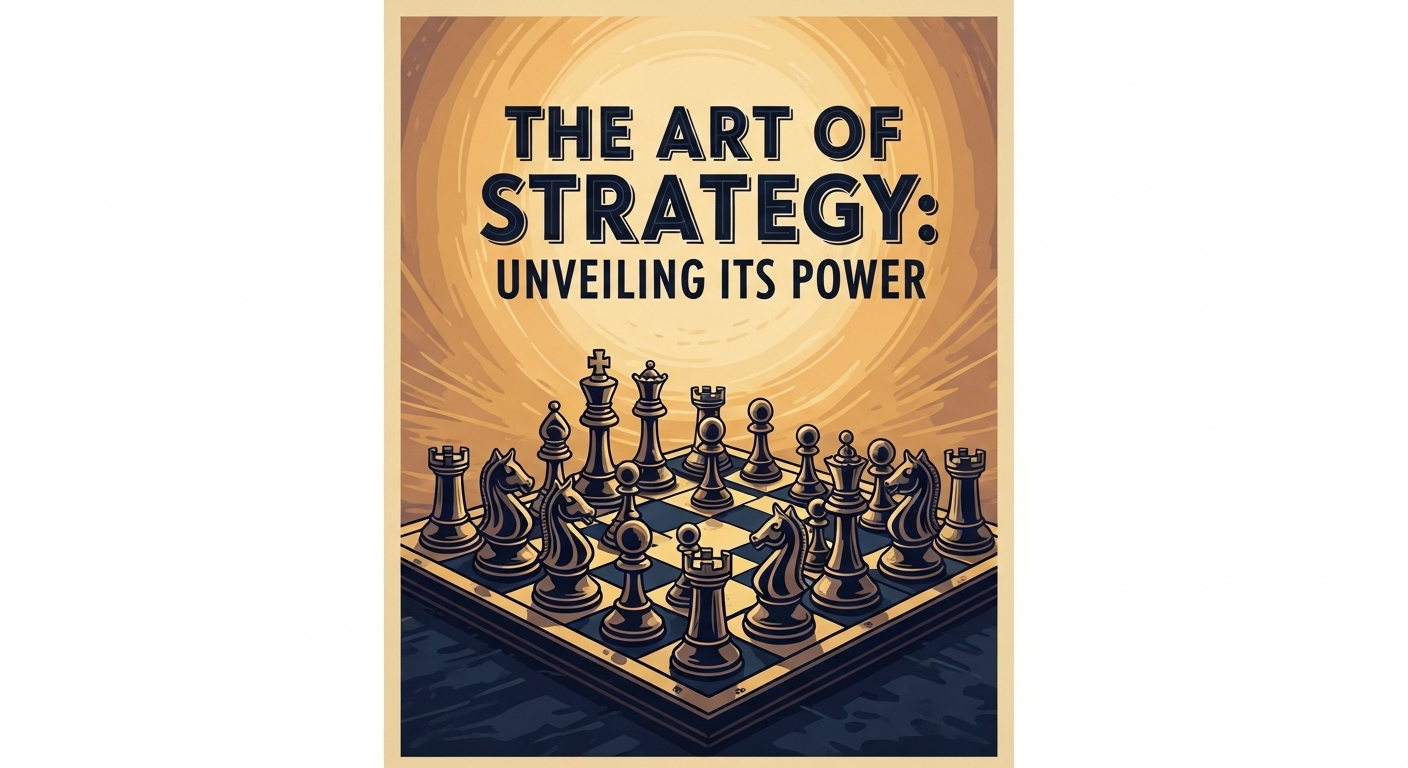Title: Unveiling the Power of Strategy: A Comprehensive Guide
Introduction
In the realm of business, sports, warfare, and everyday decision-making, strategy plays a pivotal role in achieving success and outmaneuvering competition. The term ‘strategy’ is often thrown around in various contexts, but what exactly does it mean? Let’s delve into the fascinating world of strategy, exploring its history, significance, applications, and future trends.
History of Strategy
The concept of strategy finds its roots in ancient civilizations, where military commanders devised tactics to secure victories in battles. Sun Tzu’s “The Art of War” from ancient China and Machiavelli’s “The Prince” from Renaissance Italy are timeless classics that expound the principles of strategy. Over time, the art of strategy has evolved beyond the battlefield to encompass diverse domains, including business, politics, and sports.
Significance of Strategy
At its core, strategy involves making informed choices to achieve specific objectives in a competitive environment. In the business world, a well-crafted strategy can provide a roadmap for organizations to navigate challenges, seize opportunities, and sustain a competitive advantage. Whether it’s entering new markets, launching innovative products, or optimizing operations, strategic thinking is essential for long-term success.
Applications of Strategy
Strategic thinking permeates every aspect of our lives, from personal goal-setting to organizational decision-making. In business, companies develop corporate strategies to align their resources with market demands and customer needs. Marketing strategies help businesses reach their target audience effectively, while operational strategies streamline processes for efficiency. Additionally, individuals can benefit from strategic planning by setting SMART goals and mapping out action plans to achieve them.
Future Trends in Strategy
As technology continues to disrupt industries and reshape the business landscape, the future of strategy is poised for transformation. The rise of artificial intelligence, data analytics, and machine learning is revolutionizing how organizations formulate and execute strategies. Companies are leveraging big data to gain valuable insights, predict market trends, and enhance decision-making processes. Agile strategies that emphasize adaptability and flexibility are becoming increasingly popular in today’s fast-paced and unpredictable business environment.
The Role of Innovation in Strategy
Innovation is the lifeblood of strategic success, driving organizations to explore new possibilities, challenge the status quo, and stay ahead of the curve. By fostering a culture of creativity and experimentation, companies can uncover breakthrough ideas, develop cutting-edge products, and disrupt traditional markets. Innovation in strategy involves thinking outside the box, taking calculated risks, and embracing change as a catalyst for growth and evolution.
Conclusion
In conclusion, strategy is not just a buzzword but a powerful tool that shapes the course of action and determines the outcome of endeavors. By understanding the history, significance, applications, and future trends of strategy, individuals and organizations can harness its potential to achieve their goals and thrive in a competitive world. Embrace the art of strategy, and unlock new possibilities for success and growth in all aspects of your life.

